Land Subdivision in New Zealand: Legal Requirements and Compliance Guide
 By
Trent Bradley
·
9 minute read
By
Trent Bradley
·
9 minute read
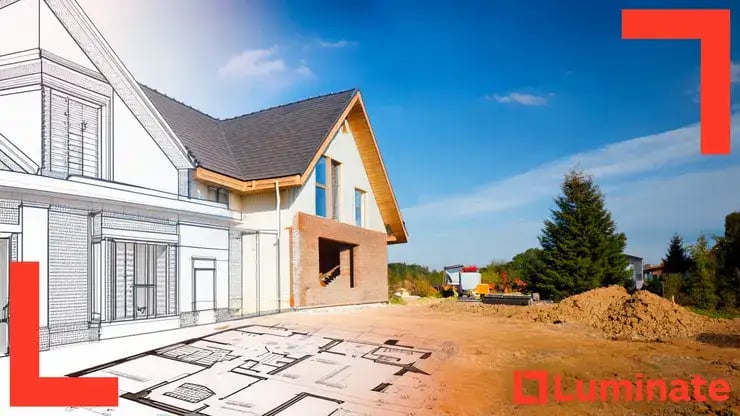
Land subdivision in New Zealand operates within a complex legal framework combining property law, planning legislation, and administrative requirements. Understanding these legal requirements is essential for successful subdivision development, ensuring compliance while avoiding costly delays and legal complications. This comprehensive guide explores all major legal requirements governing land subdivision in New Zealand, from initial planning through final title creation.
Legislative Framework for Land Subdivision
New Zealand's subdivision legal framework involves multiple statutes creating comprehensive requirements for subdivision development and title creation.
Resource Management Act 1991: The RMA provides the primary legal framework for subdivision consent, establishing territorial authority powers to control subdivision through district plans and consent processes. The RMA emphasizes effects-based assessment focusing on environmental outcomes rather than prescriptive rules.
Land Transfer Act 2017: The Land Transfer Act governs property title creation and registration, establishing requirements for survey accuracy, title documentation, and Land Information New Zealand (LINZ) processes. This Act ensures legal certainty for property ownership while maintaining cadastral system integrity.
Unit Titles Act 2010: The Unit Titles Act enables complex subdivision arrangements including apartment developments, commercial complexes, and mixed-use projects through unit title structures. Unit titles create individual ownership within shared developments requiring specialized legal structures.
Local Government Act 2002: Local government legislation enables councils to require infrastructure provision, impose development contributions, and establish subdivision standards. This Act provides councils with powers to ensure adequate infrastructure while managing development impacts.
Building Act 2004: Building legislation influences subdivision through infrastructure building requirements, compliance obligations, and ongoing maintenance responsibilities. Building Act compliance ensures public safety while establishing long-term compliance obligations.
Public Works Act 1981: Public works legislation enables compulsory acquisition for public purposes while establishing compensation requirements and procedural safeguards. Understanding public works provisions helps assess acquisition risks and compensation entitlements.
Resource Management Act Requirements
The RMA establishes comprehensive subdivision control through consent requirements, assessment criteria, and compliance obligations.
Subdivision Consent Requirements: Most subdivisions require resource consent unless they qualify as permitted activities under district plan provisions. Consent requirements vary between territorial authorities reflecting different planning approaches and local conditions.
District Plan Compliance: Subdivision consents must demonstrate compliance with or appropriate consideration of district plan objectives, policies, and assessment criteria. District plan compliance provides the foundation for consent assessment and decision-making.
Assessment of Environmental Effects: Subdivision consent applications require comprehensive assessment of environmental effects including traffic impacts, infrastructure effects, landscape changes, and ecological considerations. Effects assessment must consider both positive and negative impacts.
Consultation Requirements: The RMA requires consultation with affected parties including neighbors, tangata whenua, and infrastructure providers. Consultation evidence demonstrates good practice while often reducing consent processing complexity and opposition.
Consent Conditions: Approved subdivision consents typically include conditions addressing infrastructure provision, environmental protection, and ongoing compliance obligations. Conditions must be reasonable, necessary, and directly related to environmental effects.
Appeals and Legal Challenge: Consent decisions may be appealed to the Environment Court by applicants, submitters, or other parties with legal standing. Appeal rights provide legal protection while potentially extending project timeframes significantly.
Review and Monitoring: Subdivision consents may include review conditions enabling councils to reconsider conditions based on new information or changed circumstances. Review provisions require ongoing monitoring and potential response preparation.
Land Transfer Act and Title Creation
The Land Transfer Act establishes legal requirements for subdivision survey and title creation ensuring property ownership certainty.
Cadastral Survey Requirements: Subdivision requires cadastral surveys prepared by licensed cadastral surveyors meeting LINZ accuracy standards and professional requirements. Survey accuracy ensures legal boundary certainty while maintaining cadastral system integrity.
Survey Plan Preparation: Subdivision survey plans must comply with LINZ standards including boundary definition, area calculations, and easement identification. Survey plans form the legal foundation for new title creation and property ownership.
Title Application Process: Creating new titles requires comprehensive applications to LINZ including survey plans, consent documentation, and compliance certificates. Title applications must demonstrate legal authority for subdivision and regulatory compliance.
Easement Creation: Subdivision often requires easement creation for access, utilities, or other purposes requiring legal documentation and title registration. Easement creation ensures ongoing property access while protecting necessary rights.
Covenant Registration: Subdivision may involve restrictive covenants controlling future development, design standards, or property use requiring title registration and ongoing enforcement mechanisms. Covenant registration ensures long-term development control.
Title Guarantee: The Torrens title system provides government guarantee of title accuracy and ownership certainty. Title guarantee protects property owners while enabling secure property transactions and development finance.
Professional and Licensing Requirements
Subdivision development requires input from various licensed professionals ensuring legal compliance and technical adequacy.
Licensed Cadastral Surveyors: Only licensed cadastral surveyors may prepare subdivision surveys and survey plans for title creation. Surveyor licensing ensures professional competence while maintaining surveying standards and accuracy.
Resource Management Planning: While not requiring specific licensing, resource consent applications typically require professional planning input from experienced practitioners with relevant qualifications and expertise.
Engineering Professionals: Subdivision infrastructure design often requires professional engineering input from appropriately qualified and experienced practitioners. Engineering work may require specific certifications and professional oversight.
Legal Representation: Subdivision projects typically require legal representation for consent conditions, contractual arrangements, and title creation processes. Legal representation ensures compliance while protecting client interests throughout complex processes.
Building Practitioners: Infrastructure building work requires appropriate building practitioner licensing and oversight. Building practitioner involvement ensures Building Act compliance while maintaining construction quality and safety.
Project Management: While not legally required, complex subdivisions benefit from professional project management ensuring coordinated delivery and regulatory compliance throughout development processes.
Infrastructure Legal Requirements
Subdivision infrastructure development involves comprehensive legal requirements ensuring public safety, environmental protection, and ongoing serviceability.
Council Engineering Standards: Subdivision infrastructure must comply with council engineering standards covering road construction, utility provision, and stormwater management. Engineering standards ensure infrastructure adequacy while establishing ongoing maintenance responsibilities.
Utility Provider Requirements: Infrastructure development requires coordination with utility providers including electricity, telecommunications, gas, and water services. Utility coordination ensures adequate service provision while establishing connection rights and obligations.
Health and Safety Obligations: Infrastructure construction must comply with health and safety legislation including workplace safety requirements and public protection measures. Safety compliance protects workers and community while establishing legal liability frameworks.
Environmental Protection: Infrastructure development must comply with environmental protection requirements including erosion control, contamination management, and ecological protection. Environmental compliance ensures sustainable development while preventing enforcement action.
Road Dedication: Subdivision roads may require dedication to councils or remain private with appropriate legal structures ensuring ongoing maintenance and public access. Road dedication creates ongoing legal obligations while ensuring public access provision.
Service Connections: Infrastructure development requires legal arrangements for service connections including water supply, wastewater disposal, and utility services. Connection arrangements establish ongoing service relationships while ensuring adequate provision.
Development Contributions and Financial Requirements
Subdivision development involves various financial obligations ensuring adequate infrastructure and community facility provision.
Development Contributions: Most councils impose development contributions funding infrastructure including roads, parks, community facilities, and network utilities. Contribution calculation methods and payment timing vary between councils affecting project cash flow and viability.
Infrastructure Bonds: Councils often require performance bonds ensuring infrastructure completion and maintenance during defects liability periods. Bond requirements affect project cash flow while providing councils with completion assurance.
Legal Costs: Subdivision projects involve significant legal costs including consent applications, professional services, and title creation processes. Legal cost budgeting should include all regulatory requirements and professional input throughout development periods.
Compliance Costs: Ongoing compliance with consent conditions may require monitoring, reporting, and management costs. Compliance cost planning should consider long-term obligations and management requirements.
Insurance Requirements: Subdivision development requires comprehensive insurance coverage including public liability, professional indemnity, and construction insurance. Insurance requirements protect against various risks while ensuring adequate coverage for potential claims.
Financial Security: Some subdivision projects require financial security including guarantees, bonds, or deposits ensuring regulatory compliance and infrastructure completion. Security requirements affect funding arrangements while providing regulatory assurance.
Compliance and Enforcement
Subdivision development creates ongoing legal obligations requiring systematic compliance management and enforcement risk mitigation.
Consent Condition Compliance: Subdivision consents include conditions requiring ongoing compliance including infrastructure maintenance, environmental monitoring, and reporting obligations. Condition compliance requires systematic management while preventing enforcement action.
Building Code Compliance: Infrastructure building work creates ongoing Building Code compliance obligations including inspection, maintenance, and certification requirements. Building compliance ensures public safety while establishing legal liability frameworks.
Health and Safety Compliance: Subdivision infrastructure creates ongoing health and safety obligations including public safety maintenance and risk management. Safety compliance protects communities while preventing legal liability.
Environmental Compliance: Subdivision development may create ongoing environmental compliance obligations including monitoring, reporting, and management requirements. Environmental compliance ensures sustainable outcomes while preventing enforcement action.
Enforcement Penalties: Non-compliance with legal requirements may result in enforcement action including infringement notices, prosecution, and remedial work orders. Enforcement action creates significant costs while potentially preventing further development activity.
Legal Liability: Subdivision developers face potential legal liability for non-compliance, defective work, or inadequate infrastructure provision. Liability management requires professional expertise while maintaining adequate insurance coverage.
Contractual and Commercial Legal Requirements
Subdivision development involves complex contractual arrangements requiring careful legal structuring and professional management.
Development Agreements: Large subdivisions may require development agreements with councils or other parties establishing infrastructure provision, timing, and cost sharing arrangements. Development agreements create binding obligations while providing development certainty.
Construction Contracts: Infrastructure development requires comprehensive construction contracts including performance standards, payment arrangements, and risk allocation. Construction contracts protect all parties while ensuring quality outcomes and timely completion.
Professional Service Agreements: Subdivision projects require multiple professional service agreements including surveying, engineering, planning, and legal services. Service agreements establish scope, timing, and payment arrangements while protecting client interests.
Sales and Purchase Agreements: Subdivision lot sales require comprehensive legal documentation including warranties, conditions, and settlement arrangements. Sales agreements protect purchaser interests while ensuring developer obligations are clearly defined.
Financing Agreements: Development finance involves complex legal documentation including facility agreements, security arrangements, and compliance obligations. Financing agreements establish funding terms while protecting lender interests throughout development periods.
Partnership Agreements: Joint venture subdivisions require comprehensive partnership agreements including capital contributions, profit sharing, and management arrangements. Partnership agreements protect all parties while ensuring clear operational frameworks.
Dispute Resolution and Legal Remedies
Subdivision development may generate disputes requiring appropriate resolution mechanisms and legal remedies.
Contract Disputes: Commercial disputes may arise from construction contracts, professional service agreements, or partnership arrangements requiring resolution through negotiation, mediation, or litigation. Dispute resolution requires appropriate legal representation while managing cost implications.
Consent Appeals: Resource consent decisions may be appealed to the Environment Court requiring specialized legal representation and expert witness support. Appeal processes can take 12-24 months while involving significant costs and uncertainty.
Neighbor Disputes: Subdivision development may generate neighbor disputes regarding boundary locations, easement rights, or development impacts requiring legal resolution. Neighbor disputes require diplomatic resolution while protecting legal rights and development objectives.
Defects and Warranty Claims: Infrastructure defects may generate warranty claims requiring resolution through construction contracts, professional indemnity insurance, or legal proceedings. Defects management requires systematic documentation while protecting against legal liability.
Title Disputes: Title creation may face disputes regarding boundary accuracy, easement rights, or covenant obligations requiring resolution through legal processes. Title disputes require specialized legal expertise while potentially affecting development completion.
Regulatory Disputes: Disputes with regulatory authorities regarding compliance interpretation or enforcement may require legal resolution through appropriate channels. Regulatory disputes require understanding of administrative law while maintaining professional relationships.
Risk Management and Legal Protection
Effective risk management requires understanding legal exposures and implementing appropriate protection mechanisms.
Professional Indemnity: Subdivision projects require comprehensive professional indemnity insurance covering design errors, construction defects, and regulatory non-compliance. Professional indemnity protects against financial loss while ensuring adequate coverage levels.
Public Liability: Development activities require public liability insurance protecting against third-party claims including property damage and personal injury. Public liability coverage ensures adequate protection while meeting regulatory requirements.
Legal Structure: Subdivision projects benefit from appropriate legal structures including limited liability companies, trusts, or partnership arrangements limiting personal exposure while optimizing tax outcomes. Legal structuring requires professional advice balancing protection with operational efficiency.
Contract Risk Allocation: Contractual arrangements should appropriately allocate risks between parties while ensuring adequate protection for all stakeholders. Risk allocation requires professional negotiation while maintaining commercial viability.
Insurance Coverage: Comprehensive insurance programs should cover all identified risks including construction risks, professional liability, and ongoing operational exposures. Insurance coverage requires regular review while ensuring adequate limits and coverage.
Contingency Planning: Legal compliance requires contingency planning for various scenarios including regulatory changes, dispute resolution, and enforcement action. Contingency planning provides response frameworks while minimizing legal exposure.
Regional Legal Variations
Legal requirements vary between regions reflecting different council policies, market conditions, and development characteristics.
Auckland Legal Environment: New Zealand's largest market involves complex legal requirements including sophisticated development agreements, extensive consultation obligations, and detailed compliance requirements. Auckland legal practice requires specialized expertise while managing regulatory complexity.
Provincial Legal Practice: Smaller centers often involve more straightforward legal requirements with direct professional relationships and streamlined processes. Provincial practice may offer faster resolution while requiring local market understanding.
Rural Legal Considerations: Rural subdivisions face unique legal requirements including private infrastructure obligations, agricultural protection measures, and environmental constraints. Rural legal practice requires understanding of agricultural law while addressing rural development characteristics.
Tourism Area Legal Issues: Tourism-dependent areas may face specialized legal requirements including visitor accommodation controls, environmental protection measures, and seasonal operation restrictions. Tourism legal practice requires understanding of hospitality law while addressing seasonal market variations.
Future Legal Developments
Legal requirements continue evolving in response to policy changes, environmental concerns, and market development pressures.
Resource Management Reform: Government reforms to planning legislation may significantly change subdivision legal requirements while potentially simplifying some approval processes. Reform monitoring requires ongoing legal advice while preparing for regulatory changes.
Climate Change Law: Increasing climate change focus may create new legal requirements including emission reduction obligations, resilience planning, and environmental protection measures. Climate law development requires ongoing monitoring while ensuring compliance preparedness.
Building Law Evolution: Building legislation continues evolving in response to construction industry changes, safety concerns, and performance requirements. Building law development affects infrastructure obligations while creating new compliance requirements.
Digital Law Development: Technology advancement creates new legal issues including digital consent processing, electronic documentation, and cyber security requirements. Digital law development requires understanding of technology implications while ensuring legal compliance.
Working with Legal Specialists
Subdivision legal requirements necessitate professional legal expertise throughout development processes from initial planning through final completion.
At Luminate Finance, we understand that legal compliance forms the foundation of successful subdivision development and work closely with experienced legal professionals who specialize in subdivision and development law.
Our extensive network includes legal specialists across all regions who provide expert guidance on subdivision legal requirements, regulatory compliance, and risk management strategies that protect developer interests while ensuring successful outcomes.
We often coordinate with legal specialists during project planning and development, ensuring that legal requirements are understood and managed appropriately while structuring development finance that accommodates legal obligations and compliance costs.
Our comprehensive approach includes legal requirement assessment, professional coordination, and ongoing compliance support that aligns legal obligations with development objectives and financing arrangements.
Through our involvement in numerous subdivision projects, we've developed deep understanding of legal requirements across different councils and development types while building relationships with legal specialists who provide expert subdivision law guidance.
Our integrated approach ensures that legal requirements are managed systematically throughout subdivision development while optimizing outcomes and protecting against legal risks and compliance failures.
Ready to navigate subdivision legal requirements with comprehensive professional support? Contact Luminate Finance today to discuss how our understanding of subdivision law and extensive legal professional networks can support your subdivision success through expert legal guidance and integrated development finance solutions.

Trent Bradley
Trent Bradley is a New Zealand financial advisor specializing in property-backed finance and investment consulting. With over 26 years of experience running his mortgage broking business, he has helped wholesale investors access high-yield property-backed loan opportunities. For the past 12 years, Trent has led Luminate Finance, a New Zealand finance company dedicated to connecting investors with secure property investment solutions.






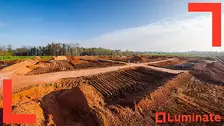












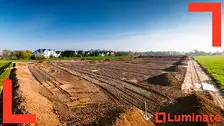
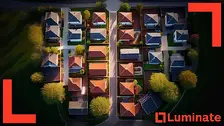







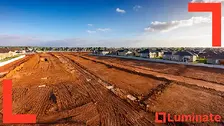

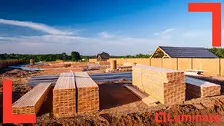



.png?//48413319.fs1.hubspotusercontent-ap1.net/hubfs/48413319/Featured%20images%20(14).png&width=247&height=126&name=Featured%20images%20(14).png)




